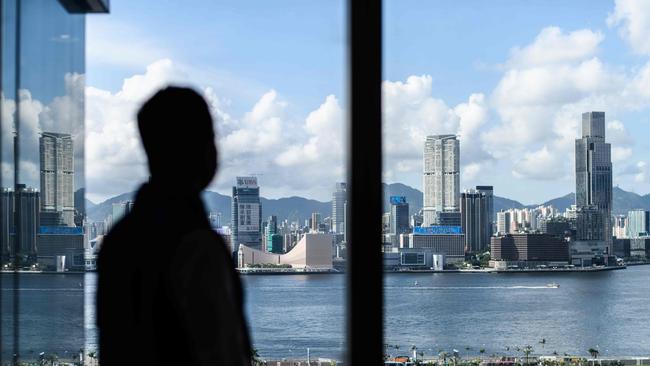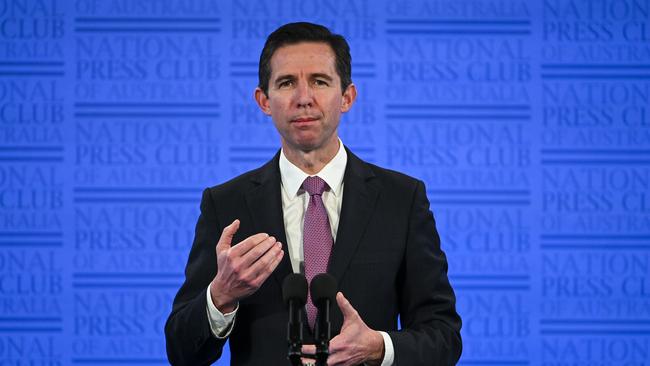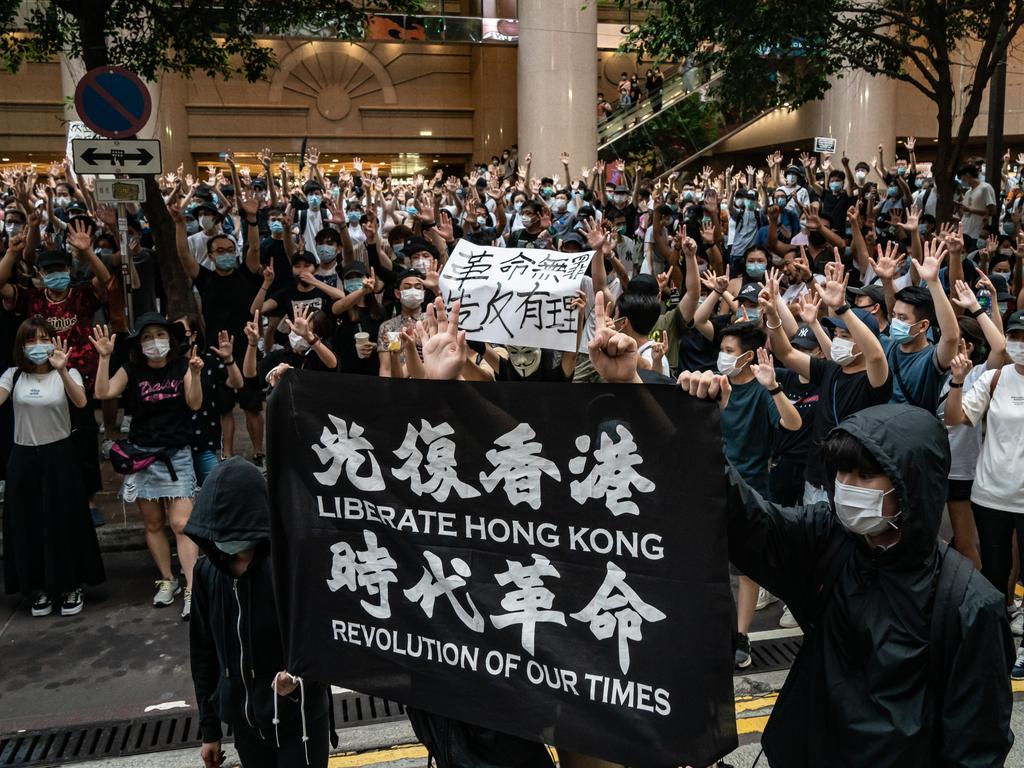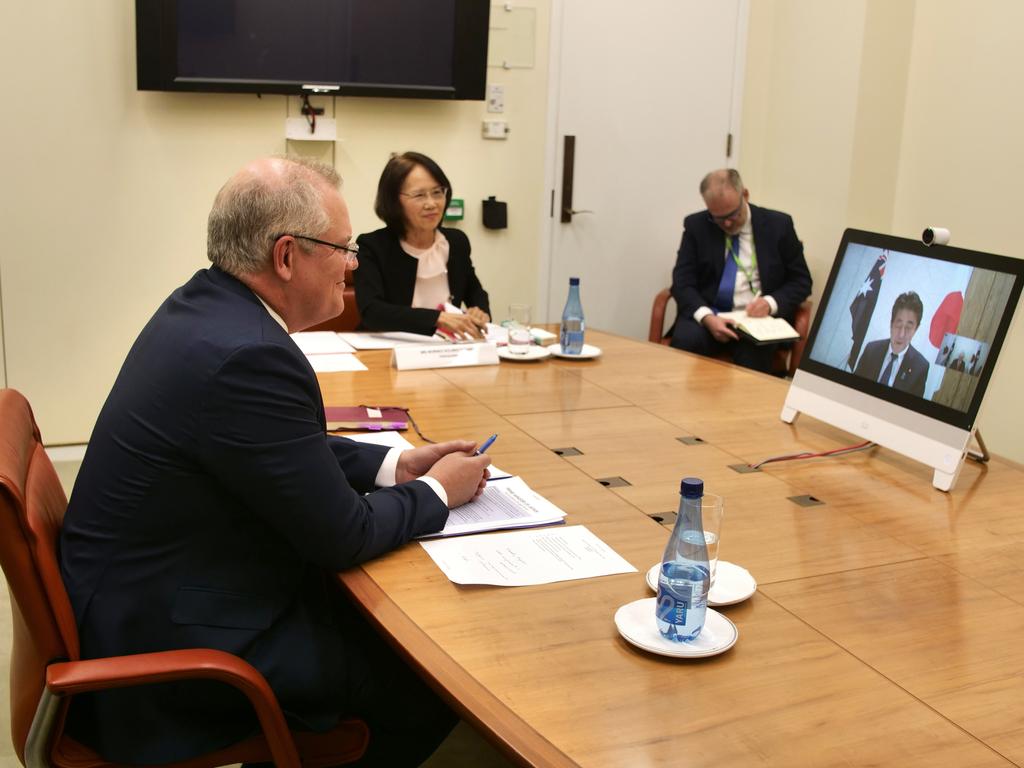Concerns grow for Australian companies in Hong Kong
Australian companies in Hong Kong are reviewing the situation in the wake of its tough new security laws.

Australian companies in Hong Kong are reviewing the situation in the wake of its tough new security laws and this week’s warnings by the federal government to Australians living in the city.
It comes as federal Trade Minister Simon Birmingham warned that Hong Kong was likely to be a less attractive place to do business in future, given the greater uncertainty in the city following a year of protests and the introduction of new security laws.
In a revised travel advisory for Hong Kong, the Department of Foreign Affairs this week officially warned some 100,000 Australian passport holders in the city that they could be deported or transferred to China for prosecution under the law, calling on them to “reconsider” their need to stay there if they were worried about the new security laws.
“Telstra has reviewed the Department of Foreign Affairs advice and will continue to monitor the situation,” a spokesman said.
“We’ve checked with our team in Hong Kong and will continue to support them through this dynamic situation.”
A spokesman for Commonwealth Bank, which has about 80 people in Hong Kong, said the bank was watching events in the city closely.
“The safety and wellbeing of our people is always our primary focus,” he said.
“So we have been monitoring developments in Hong Kong closely.
“We acknowledge the new travel advice from the Australian government and continue to stay in close contact with our Hong Kong team to provide as much support as needed.”
A spokesman for ANZ, which has about 350 people in its Hong Kong office, said the bank was monitoring the situation.
Only 15 per cent of the bank’s staff in Hong Kong are Australians. Most are long-term residents of Hong Kong. In an interview on ABC Radio on Friday, Senator Birmingham said: “Hong Kong as a business or commercial destination is an important market, but one where, due to the tragic scenes we’ve seen over the last couple of years and the greater uncertainty and risk that attaches to Hong Kong, it is probably less likely to be seen by many businesses as being attractive in the future in offering the same stability in the rule of law as in the past.
“That’s something that deeply disappoints us and many others around the world.”
Senator Birmingham said the passage of the new security laws by China presented a “fundamental change”.
He said confidence in the independence of the judiciary and the rule of law in Hong Kong, which had prevailed since Britain handed it back to China in 1997 under the “One Country, Two Systems” approach, had been “somewhat shaken” by the passage of the new laws, which was why Australia had suspended its extradition treaty with Hong Kong.
His comments came as the Hong Kong government warned that Australia’s actions could hamper the fight against international crime.
“We express deep regret and disappointment over Australia’s decision to suspend the agreement on surrender of fugitive offenders,” a spokesman for the Hong Kong government said.
He said the move had allowed the “political agenda to override legal co operation in criminal matters.”
“Such unilateral action will not be helpful to the fight against international crime,” he said.
The comment by the Hong Kong government, led by Carrie Lam, represented a rare criticism of the Australian government from Hong Kong, which signed a free-trade agreement with Australia last year.
All major foreign chambers of commerce in Hong Kong have been reviewing the implications of the new security law.
Many Australian business leaders are now refusing to comment on the situation, given the heightened political sensitivity.
“We’re not commenting at this time,” the chairman of the Australian Chamber of Commerce in Hong Kong, Andrew MacIntosh, said on Friday.
The body is one of the largest Australian chambers offshore, with members including ANZ, CLP, Commonwealth Bank, Cimic, Macquarie Group, Telstra, Australia Plus TV, CK Infrastructure and Chow Tai Fook Enterprises.
Australian companies in Hong Kong have been closely monitoring the protest movement and the controversial new security laws for the past months.
But this week’s moves by the federal government have put companies under increasing pressure, provoking anger from both Beijing and Hong Kong at a time when Hong Kong’s economy is weak.

Many Australian companies doing business with Hong Kong and China have privately questioned the reasons behind the federal government’s heightened travel warnings for both China and Hong Kong this week.
While some are concerned that the moves could be political, DFAT insists that changed travel warnings are issued in response to its perceptions of the risks facing Australians in any country or region at any time.
Foreign companies operating in Hong Kong are examining the implications of the new law, which has proven to broader than initially imagined when first mooted in Beijing earlier in the year ahead of its National Party Congress in May.
“The vast scope of the new security law imposed on the city has taken business by surprise,” Bloomberg wrote this week.
It said a new section of the law, Article 29, “forbids sanctions, blockades or hostile activities against the financial hub and China at a time when the US is closer to enacting rules that would require banks to comply with sanctions against Chinese officials and entities”.
“Running afoul of the legislations puts companies at risk of fines or losing their licence to do business,” it adds.
Meanwhile, Australian companies doing business with China are bracing for fallout from China’s anger over Australia’s actions on Hong Kong this week, as well the heightened travel advisories for China and Hong Kong.
The Chinese Embassy in Canberra issued a statement “deploring” the actions and describing them as a “violation of international law … and a gross interference in China’s international affairs.”
China’s Ministry of Foreign Affairs condemned the Morrison government’s moves to suspend the treaty and warned that China “reserved the right to make further reaction”.
“Australia should bear the consequences,” MFA spokesman Zhao Lijian warned.
The spokesman said China urged Australia to reverse its decision and “stop intervening in Hong Kong affairs and China’s domestic affairs and prevent further harm to China-Australia relations.”
While he did not give any indication of how China would hit back at Australia for its actions, he repeated earlier warnings about Chinese students travelling to Australia and warned those students already in Australia to take extra security precautions because of increasing racism.
“We once again remind students who plan to study or are studying in Australia to conduct a risk assessment and be cautious when making the choice to go or return to Australia,” he said.
The president of the Australia China Business Council, David Olsson, King & Wood Mallesons’ China practice consultant, said tensions in the bilateral relationship between Australia and China were not good for the business relationship.
“Bilateral tensions are never good for business,” he said.
“They create uncertainty and make it harder to make long-term decisions.”
But he said Australia and China continued to be “very attractive business partners”.
“Our economies are highly complementary and we have much to gain from ensuring the relationship remains strong.” Mr Olsson played down reports about the concerns of Australian companies in Hong Kong.
“Australian companies are not winding up their operations and moving out,” he said.
“They see huge potential in the emerging Greater Bay Area and are seeking out opportunities to showcase Australian expertise.
“The Hong Kong sharemarket is thriving, particularly with many new-economy listings, and remains the fourth most active IPO market in the world.”
Sue Kench, the global managing partner of King & Wood Mallesons, said KWM had “deep roots in Hong Kong as well as across mainland China” and was “mindful of compliance and cultural sensitivities”.
She said trade between Australia and China was “holding up very well”.
Australia’s goods trade with China has grown by 3.7 per cent in the five months to the end of May, compared with a fall of 2.1 per cent in Australia’s total goods trade with the rest of the world.
“Our clients continue to seek opportunity and growth and Asia remains critically important,” Ms Kench said.








To join the conversation, please log in. Don't have an account? Register
Join the conversation, you are commenting as Logout